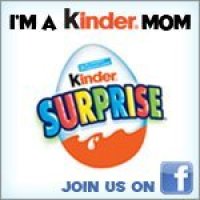The Concord Evaluation Group just released a study that shows that preschoolers learn important science and math concepts while watching Curious George on PBS KIDS, or by reading the TV tie-in books. This is particularly good news given that The National Education Policy Center issued a brief on Tuesday urging policymakers to invest in high-quality preschool education, citing its universally acknowledged economic and social benefits. PBS KIDS, and Curious George in particular, is helping to invest in preschoolers and give them the skills they need, especially in STEM education.This is important because not only is the program available for free on PBS, it's popular (it's currently the #1 series for preschoolers).
Report also shows that parents who read or watched CURIOUS GEORGE with their kids became more confident about supporting their children's science and math learning.
The study also found that Curious George TV tie-in books prompted children to use scientific habits of mind, such as making predictions, making observations, asking questions, and hypothesizing. It also indicated that parents who read or watched Curious George with their children reported feeling more confident about exploring science and math with their children and reported they were more motivated to do so.
"Science, math, and engineering sound scary, even to adults," said CEG Senior Researcher Christine Paulsen, PHD. "As preschoolers, it's a very different thing. They're learning how to explore, they're learning how to be curious. Across all platforms, Curious George is an educational winner for kids."
The long-running, top-rated PBS KIDS television series, which airs weekdays on PBS stations across the country (check local listings), is designed to inspire kids to explore science, math, and engineering in the world around them in a fun and entertaining way. Based on the best-selling books published by Houghton Mifflin Harcourt, the TV series and tie-in books encourage inquiry and curiosity, promote hands-on exploration, and show parents and caregivers how to support children's science, engineering, and math-related play.
STUDY METHODOLOGY:
CEG's study employed the use of a rigorous, experimental research design to evaluate the impact of the Curious George TV tie-in books on children's (ages 4-5) knowledge of science and math concepts such as measurement, hibernation, colors, and weather. CEG also studied the impact of the Curious George television episodes on children's knowledge of buoyancy, sound, sorting, and plant life. Content for the book group and television group differed, so no comparisons can be made between how the two groups performed.
Families were recruited from preschools across the country and eligible families were randomly assigned to one of two treatment groups or a control group. Study participants included 155 families representing 31 different states. Families received books and/or episodes on DVD for their participation. Families across the treatment and control groups were equivalent in terms of the children's age, gender, ethnicity, household socioeconomic status, parent education, prior exposure to Curious George, family interest in science and math activities, and children's curiosity about science and math.
KEY STUDY FINDINGS:
* Children who watched the Curious George episodes and read the Curious George TV tie-in books scored significantly higher on science and math concepts covered.
* The study found that children who watched the Curious George episodes scored better on a test of the science and math concepts covered (i.e., buoyancy, sound, sorting, and plant life) than children who did not watch the episodes. Children who read the Curious George TV tie-in books also scored better on a test of the science and math concepts covered in the books (i.e., measurement, hibernation, colors, and weather) than children who did not read the books.
* Curious George enabled parents to become more comfortable helping their children learn science and math.
*The majority of parents whose children watched the episodes (86%) or read the TV tie-in books (84%) reported that Curious George helped them feel more confident that they could help their children learn about science and math.
To access the complete study findings online, including an executive summary, please visit pbskids.org/curiousgeorge/research






0 comments:
Post a Comment